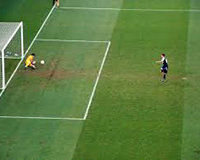Allyson Colby fears the Supreme Court’s recent review of the law on penalties will lead to more shoot-outs in the future
Key points
- The Supreme Court has reached an immensely important decision that affects both commercial and consumer contracts
- It reshapes the law and introduces a broader test of what constitutes a penalty
- The new formulation draws on earlier cases explaining the basis of the rule against penalties
The courts are, in general, reluctant to interfere with commercial bargains. However, they will not enforce penal clauses triggered by breaches of contract. Traditionally, compensatory clauses requiring payments representing a genuine pre-estimate of the loss that innocent parties expect to suffer as a result of a breach of contract are accepted as valid. By contrast, clauses requiring one of the parties to pay a sum that exceeds the loss that the other can reasonably be expected to incur are treated as unenforceable penalties.
It is not always easy to apply this test to modern contracts containing more complex provisions. Thus, all eyes were on the Supreme Court in Cavendish Square Holding BV v Talal El Makdessi; ParkingEye Ltd v Beavis [2015] UKSC 67; [2015] PLSCS 309, where the rule came under attack for being antiquated, anomalous and unnecessary.
The types of contract under scrutiny, and the amounts at stake, lay at opposite ends of the spectrum. Cavendish concerned a contract for the sale and purchase of a business negotiated by sophisticated, successful and experienced businessmen bargaining on equal terms over a long period, aided by expert legal advice. By contrast, ParkingEye concerned a non-negotiable charge made by a car park operator because a motorist had overstayed his welcome in a car park. For details of both cases, see PP 2015/212 and PP 2015/213.
Abolition, restriction or extension?
Lords Neuberger and Sumption agreed that the rule against penalties was “an ancient, haphazardly constructed edifice, which has not weathered well”. In fact, they doubted whether the rule would have been invented today. However, the seven-man panel refused to abolish the rule, or to restrict its application to non-commercial transactions.
The court noted that statutory regulation, which did not exist when the rule was being developed, is now a significant feature of contract law. Even so, it is not all-encompassing and small businesses often have little say on the terms of contracts with large commercial entities. Furthermore, the rule is common to almost all major systems of law in the Western world.
Indeed, the Scottish and English Law Commissions have recommended legislation to extend the rule, along lines now accepted in Australia, to cover onerous stipulations that operate on the occurrence of events that are not, in themselves, breaches of contract. However, the court agreed that such an innovation would require legislation and set out to tackle the anomalies in the law instead.
The modern rule
The court explained that the rule does not affect parties’ primary obligations because it is not up to the court to review the fairness of such obligations. Nonetheless, the court can consider whether secondary obligations, triggered by breaches of contract, impose consequences on contract breakers out of all proportion to any legitimate interests of the innocent party in the enforcement of primary obligations.
Parties will have a legitimate interest in recovering sums constituting reasonable pre-estimates of damages. However, there will also be cases in which an innocent party’s interests extend beyond the recovery of pecuniary compensation. In such circumstances, the court must consider whether the provisions made to protect such interests are extravagant, exorbitant or unconscionable.
The fact that provisions may be designed to have a deterrent influence on potential contract breakers will not necessarily mean that they are penal. But, if a term is penal, English courts cannot modify or abate it to enable the innocent party to enforce any parts of the clause that might otherwise have been valid.
Obligations to pay money and transfer assets fall within the rule against penalties. In addition, their Lordships either agreed, or were prepared to assume, that clauses that authorise innocent parties to withhold sums that would otherwise be due to contract breakers may also constitute penalties. Uncertainties regarding the loss of pre-payments made by contract breakers, the intricacies of the relationship with the law on deposits and the relationship between the law on penalties and forfeiture were left for another day.
Questions of judgment
The fact that the rule against penalties is still alive and kicking means that the issue of whether a provision falls within its scope and, if so, whether the clause is valid, will remain questions of judgment – initially for the parties and, ultimately, the court. It will not always be easy to decide. Indeed, the decision that the terms under consideration in Cavendish were both primary obligations, which fell outside the rule, was reached by a majority and, although the court warned that it would be able to see through penalties disguised as primary obligations, it did not state what factors it would take into account when doing so.
Practitioners will be keen to understand how courts will assess the proportionality of secondary obligations. In ParkingEye, the court was able to compare the £85 charge for overstaying with local authority charges and the maximum amount recommended in the industry’s code of practice. There were no such yardsticks to assist in Cavendish, but the court was reassured by the fact that the amounts at stake were carefully and deliberately negotiated by informed and legally advised businessmen dealing at arm’s length with each other.
Allyson Colby is a property law consultant








